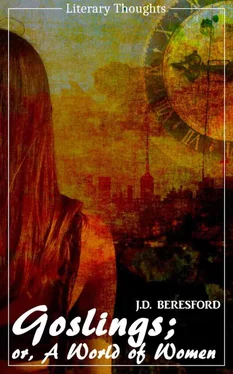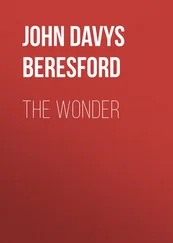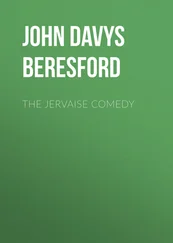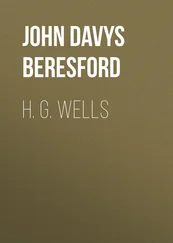“Yes,” returned Thrale; “I have some facts about the new plague which ought to be given publicity at once.”
Groves pursed his thick lips and shook his head. “Well, well,” he said, “will you come and have tea with me at the club?”
He took Thrale’s assent for granted, and went out abruptly, leaving his guest to follow.
In the taxicab Groves talked of nothing but the lack of originality in invention in reference to aeroplanes. He seemed to take it as a personal affront that no workable adaptation of the aeroplane had been made to short-distance passenger traffic.
Indeed, it was not till after “tea”—in Groves’ case an euphemism for whisky and soda—that he would approach the subject of Thrale’s visit.
“The fact is, my dear fellow,” he said, “that our campaign hasn’t caught on. I’m going to let it down gently and drop it after to-day’s edition. You see, we’ve got to get the Government out this session, and I’m going to start a new campaign. Can’t give you any particulars yet, but you’ll see the beginning of it next Monday.” Like Maxwell, Groves differentiated between the uses of the singular and plural pronouns in speaking of his work. There was a distinction to be inferred between the initiation and responsibilities of the editor and those of his proprietors.
Groves was not at all impressed by any earnestness or forebodings. He seemed to think that a touch of the plague in London might be rather a good thing in some ways. People wanted waking up—especially to the importance of getting rid of the present Government.
It appeared that Thrale’s articles on other subjects would be acceptable to the readers of the Evening Chronicle, but there was no suggestion that he should go out to Russia as a special commissioner.
3
Grant Lacey, of The Times, listened seriously to Thrale’s exposition, and then, in a finely delivered speech which lasted twenty minutes, proved to his own complete satisfaction that Thrale’s premises, deductions, and whole argument were thoroughly unsound. Lacey, however, was greatly interested in the condition of Russia, and promised Thrale magnificent terms if he would tour St Petersburg, Moscow, Kiev, Warsaw—and then return and contribute a special series of articles. References to the new plague would not be prohibited in the series if Thrale still found any cause for alarm.
In all, Thrale had interviews with the editors of nine important journals; the other six developed on the general lines already indicated—either he was not taken seriously or was told that the danger was greatly exaggerated. The real causes of his failure were two:—first, the critical position of the Government; second, the precocious campaign of the Evening Chronicle—the latter had taken the wind out of the sails of less enterprising journals.
Thrale’s next step was to obtain introductions to Ministers and prominent members of the Opposition; but from them he received even less attention—he did not obtain interviews on many occasions—and, if possible, less encouragement. The President of the Local Government Board informed him that the matter was already engaging that department’s energies; the others were all manifestly preoccupied with more immediate interests.
But little less than a fortnight after the initiation of his campaign Thrale received a special message from the editor of the Daily Post. It was nearly midnight, and the messenger was waiting with a taxicab.
The message ran: “Received through news agency report of three cases of plague in Berlin. Can you come down at once?—Maxwell.”
1
Jasper Thrale, in the partial exposition of his philosophy (if that description is not too large for such vague imaginings), had included very definite reference to certain “higher forces” to which he had attributed peculiar powers of interference in humanity’s management of its own concerns. Doubtless these powers had control of various instruments, and were able to exercise their influence in any direction and by any means. In the present case it would seem that they were working in devious and subtle ways—and in this at least they differed not at all from the methods attributable to that we have called Providence, or the Laws of Nature; any assumed guide or irrefragible, incomprehensible ordination. It is a common characteristic of these forces that they seem able to control the inconceivably great and the inconceivably small with equal certitude.
Not that George Gosling touched any limits. He was moderately large in body and small in intellect, but neither the physical excess nor the mental deficiency marked him out from his fellow men. In the office, indeed, he was regarded by the firm and his colleagues as a capable man of business whose embonpoint was quite consistent with his employment by a firm of wholesale provision merchants.
On the Thursday morning that saw the announcement in the morning papers that a case of the new plague was reported in Berlin, Gosling was called into the partners’ private office on some matter of accountancy.
The senior partner of Barker and Prince was eager, grasping and imaginative; his name had originally been German, and ended, in “stein,” but he had changed it for the convenience of his English connexion. Prince was a large rubicund man, friendly and noisy in his manners, but accounted a shrewd buyer.
It was not until Gosling was about to depart that the higher forces turned their attention to Barbican and then they suddenly urged Gosling to say, without premeditation on his part,
“I see there’s a case of this ’ere new plague in Berlin.”
Mr Prince laughed and winked at his subordinate. “Some of us’ll have to start a hareem, soon; who knows?” he said, and laughed again, more loudly than ever.
“I suppose you haf not heard any other reports, eh?” asked Mr Barker.
“Well, curiously enough, I ’ave,” said Gosling. “A young feller who used to lodge with us five years back, come ’ome from Russia about a fortnight since, and ’e tells me as the plague’s spreadin’ like wildfire in Russia.”
Mr Prince laughed again, and Mr Barker seemed about to turn his attention to other matters, when the higher forces sent Gosling the one great inspiration of his life. It came to him with startling suddenness, but he gave utterance to it as simply and with as little verve as he spoke his “good morning” to the office-boy.
“I been thinkin’, sir,” he said (he had never once thought of it until this moment), “as it might be well to keep a neye on this plague, so to speak.”
“Ah! Zo?” said Mr Barker; a phrase which Gosling correctly interpreted as the expression of a desire for the elucidation of his last remark.
“Well, I been thinkin’, if you’ll excuse me, sir,” he went on, “as though the plague’s only in the bud, so to speak, at the present time, it seems very likely to spread so far as we can judge; and that what with quarantine, p’raps, and p’raps shortage of labour and so on, it might mean ’igher prices for our stuff.”
“Zo!” said Mr Barker, but this time the monosyllable was reflective. The great inspiration had found fruitful soil.
“Brince,” continued Barker after a minute’s thought, “I haf a flair. We will buy heavily at once. But not through our London house, no; or others will follow us too quickly. You must not go, we will zend Ztewart from Dundee, it will zeem that we prepare for the zhipping strike in the north. We buy heavily; yes? I haf a flair.”
“But, I say,” said Mr Prince, who had the greatest confidence in his partner’s insight, “I say, Barker, d’you think this plague’s serious?”
“I am putting money on it, ain’t I?” asked Barker.
Читать дальше












